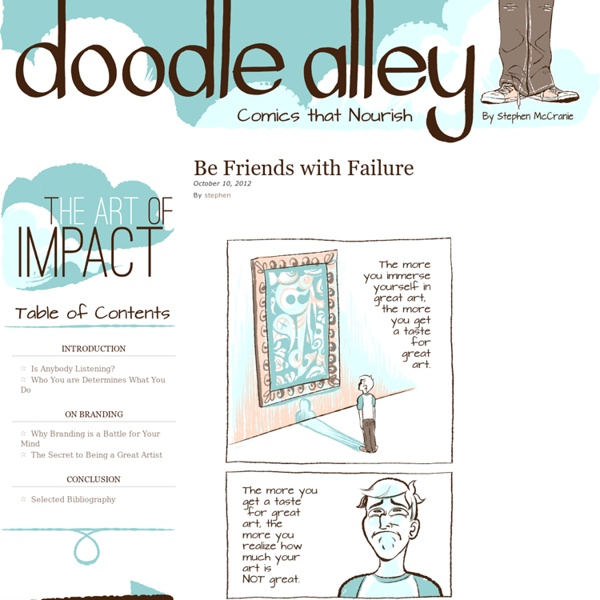



Imaginary Worlds podcast: Magical Thinking Hocus Pocus. Those words imply magic is silly because it solves problems too easily. That's why fantasy novelists strive to avoid Abracadabra type of situations when designing magic system from scratch. Patrick Rothfuss (author of The Kingkiller Chronicle) explains how magic can be divided into two camps: the poetic and the scientific. Tor.com critic Martin Cahill appreciates Rothfuss's work because he combines both types of magic in his novels. And psychology professor Carol Nemeroff reveals why our brains are hardwired to believe in magical thinking Speak Your Language by Lucky Dragons Invisible Worlds by Phantom Fauna Poverty Island by Sono Sanctus
Second Half Survival: 4 Tips to Get You from January to June We have entered the second half of the school year, and many of you are probably surprised that you've made it this far without killing someone. Those are very natural feelings, but you might not be able to last the rest of the school year if that's where your mind is at the moment. After ten years in the classroom, I've put together what I think are some excellent tips for making it through the second half of the school year in one piece -- and not in jail. See which of these strategies can make the next six months a piece of cake in your classroom. 1. This may one of the hardest things you can ask yourself to do. 2. For some reason, asking for help is viewed as a sign of weakness or ineptitude. 3. Sometimes we keep frustrations and fears bottled up and then ruin an entire summer break trying to deal with them. 4. One of the best things I've ever done is reflect on my teaching on a regular basis.
Doodle Alley Writups.org In-depth Profiles of Fictional Characters and more 29 Ways to Stay Creative Superhero designed by Moriah Rich from the Noun Project Being in the zone means that you’ve become so absorbed in the activity at hand that it’s impossible to concentrate on anything else. It’s when code seems to flow from your fingertips, when words seem to fly out of your pen, and when your stylus seems to take on a life of its own. But a common misconception about the zone is that it’s some some elusive, magical place. 1) Give a shit about what you’re doing. There are several factors that influence our ability to get into the zone, chief among which are focus, energy, no distractions and music. Read the rest of Rue’s blog post on how to remain in the zone here. Related: Not Too Hard, Not Too Easy: Finding Flow In Your Work
Reader Question: How Do I Start A Career In Digital Marketing? Recently I answered some questions for my colleagues on the Life at Google team on what it’s like to be a product marketing manager for Google Analytics. You can check it out here. Yesterday I received an email from a recent graduate who had read the interview seeking guidance. As usual I always like to answer these sorts of things in a way that’s sharable. I came across your interview with Life at Google on Twitter today. This is a great question! Also, this student is correct: at this juncture digital marketing is really not new. I think the best thing you can do is begin building a sandbox project from the ground up, without help. That’s if you’re ambitious but I highly recommend it, there is zero chance you would regret the time spent building something yourself. image credit: Shutterstock
The Blackwell Philosophy and Pop Culture Series | The Blackwell Philosophy and Pop Culture Series 30 Habits Of Highly Effective Teachers Editor’s Note: We often look at the qualities and characteristics of good teaching and learning, including the recent following pieces: How A Good Teacher Becomes Great What You Owe Your Students Ten Secrets To Surviving As A Teacher The Characteristics Of A Highly Effective Learning Environment How To Be A Mediocre Teacher So it made sense to take a look at the characteristics of a successful educator, which Julie DuNeen does below. 25 Things Successful Teachers Do Differently by Julie DuNeen If you ask a student what makes him or her successful in school, you probably won’t hear about some fantastic new book or video lecture series. What students take away from a successful education usually centers on a personal connection with a teacher who instilled passion and inspiration for their subject. Are teachers reaching their students? 1. How do you know if you are driving the right way when you are traveling somewhere new? 2. We can’t all be blessed with “epic” workdays all the time. 3. 4. 5.
“What I’ve learned about creating meaningful work” Working for yourself is scary stuff. When you work for someone else, it's easy to blame failings or frustrations on the boss, the company or even the customers you're forced to deal with. But when you run the show, it's all on you. Self-employment is the ultimate life experiment, complete with an uncountable number of variables that come with large amounts of fear and challenges. But for those of us who do it, we don't know any other way. I've been on this path for over 16 years, mostly writing and making websites, but I've also started a handful of other ventures that have absolutely flopped. Along the way, I've learned a few things, not just about doing well at working for yourself, but how I could actually enjoy working for myself. Here's what I’ve learned: Just Start Don't think too much about starting something or you might talk yourself out of it. I started writing my first book before I thought too much about it. Experiment Make Your Own Path Show Up Be Present Tiny Pieces